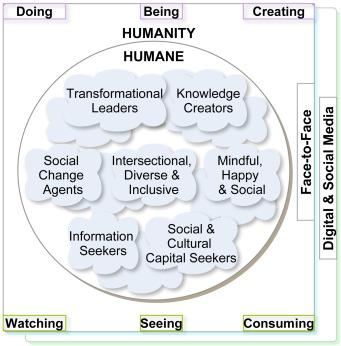Unlocking the Role of a Data Insights Manager in Education: Key Skills and Career Outlook
introduction
The digital transformation of education has paved the way for innovative roles, with the Data Insights Manager emerging as a crucial player in universities, colleges, and schools. As educational institutions strive to leverage technology for better learning outcomes and institutional efficiency, the demand for specialists who can turn raw data into actionable intelligence is rapidly growing. If you are a job seeker interested in education technology jobs, understanding how to excel as a Data Insights Manager can open new opportunities in higher education and K-12 sectors alike.
What is a Data Insights Manager in Education?
A Data Insights Manager in education is responsible for collecting, analyzing, and interpreting large sets of educational data to improve teaching, learning, administration, and institutional planning. This role serves as a bridge between technical data analysis and strategic educational decision-making. By transforming numbers into narratives, Data Insights Managers enable schools, colleges, and universities to optimize student outcomes, resource allocation, and overall performance.
- Designing and maintaining data dashboards for educators and administrators
- Identifying trends and patterns in student performance data
- Collaborating with IT, faculty, and leadership to define goals and metrics
- Presenting insights through visualizations and reports
- Ensuring data integrity, security, and compliance with regulations
Key Responsibilities of a Data Insights Manager in Educational Institutions
The specific duties of a Data Insights Manager may vary depending on the type and size of the institution, but typically include:
- Leading the collection and integration of academic and operational data from various sources
- Developing predictive models to identify at-risk students and inform interventions
- Supporting program evaluation and assessment with robust analytics
- Delivering actionable recommendations for curriculum improvements
- Training faculty and staff on effective data usage and interpretation
- Staying informed about the latest EdTech trends and analytics platforms
Essential Skills for Success as a Data Insights Manager
To thrive in the education technology sector as a Data Insights Manager, a blend of technical, analytical, and interpersonal skills is essential. Here are the key competencies and knowledge areas you need to develop:
Technical Skills
- Data Analysis and Visualization: Proficiency in tools such as SQL,Tableau,Power BI,or Google Data Studio
- Statistical Methods: Understanding of descriptive and inferential statistics
- Programming Languages: Familiarity with Python or R for data manipulation and analysis
- Database Management: Experience with data warehousing and database systems
- Data Privacy: Knowledge of data security best practices and compliance (FERPA,GDPR in educational settings)
Analytical and Business Skills
- Critical Thinking: Ability to interpret data and extract meaningful insights
- Problem Solving: Developing data-driven strategies to address educational challenges
- Project Management: Coordinating analytics projects from conception to delivery
- Interaction: Presenting complex data in accessible formats for non-technical stakeholders
Educational Knowledge
- Familiarity with education Systems: Understanding academic policies,assessment methods,and institutional KPIs
- Awareness of EdTech Tools: Staying updated on learning management systems,student information systems,and other digital learning platforms
Benefits of Becoming a data Insights Manager in Education
choosing a career as a Data insights Manager in educational settings offers a range of unique advantages,including:
- Pivotal Impact: Directly contributing to student achievement and institutional success through data-driven decisions
- Professional Growth: opportunities to lead cross-functional teams and adopt the latest education technology innovations
- Job Security: Growing demand for data professionals in schools and universities ensures stability
- Meaningful Work: Aligning analytical expertise with the mission of improving education
- Competitive Salaries: Specialized skills in educational data analytics are highly valued
Career Path and Outlook in Education data Analytics
The career outlook for Data Insights Managers in education is luminous. As more institutions recognize the need to harness accurate data for decision-making, the demand for skilled data professionals continues to rise.
- Roles can progress from Data Analyst or Business Intelligence Analyst positions to Data Insights Manager and eventually to Director of Institutional Research or Chief Data Officer.
- The versatility of this role allows for movement across higher education, K-12 systems, and dedicated education technology companies.
- The Bureau of Labor Statistics projects continued growth in data-focused roles, with an emphasis on analytical skills in the education sector.
Institutions actively seek professionals who can not only interpret vast datasets but also translate them into strategies for academic betterment and operational efficiency.
Practical Tips for Aspiring Data Insights managers
Ready to launch or advance your career as a data Insights Manager in the education sector? Here are actionable steps to help you succeed:
- Gain Experience: Look for internships or entry-level roles in educational data analysis or IT within schools or universities.
- Develop Your Skills: Take courses in data science, statistics, and business analytics. Consider certifications like Microsoft Certified: Data Analyst Associate or Tableau Desktop Specialist.
- Learn Education Data Systems: Get familiar with student information systems, assessment platforms, and learning management systems commonly used in institutions.
- Build a Portfolio: Showcase projects that demonstrate your ability to present actionable insights from educational data.
- Network: Attend education technology conferences and participate in online analytics communities to stay updated and connect with industry professionals.
- Stay Inquisitive: Follow trends in edtech, data ethics, and educational measurement to remain a valuable asset to any institution.
Conclusion
The role of a Data Insights Manager in education is a forward-thinking and impactful career path for job seekers eager to blend data science with the power of learning. As universities,colleges,and schools continue integrating advanced education technology,professionals in this field can expect growing opportunities,the chance to work collaboratively with educators and administrators,and the satisfaction of making a real difference in student outcomes. By mastering the essential skills,leveraging internship or practical experiences,and staying connected to the latest EdTech developments,you can unlock a rewarding future as a Data Insights Manager in the educational landscape.

